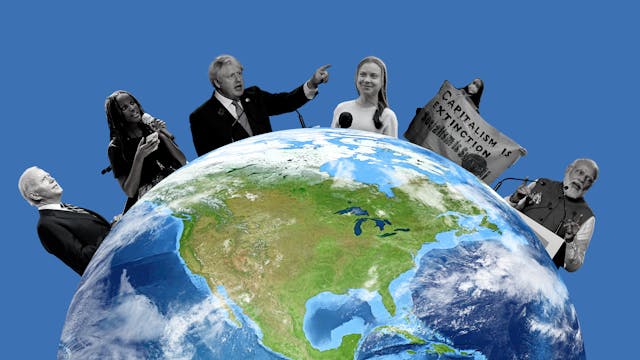Debate: Identity Politics is Tearing Society Apart
Politics & Economics
•
1h 28m
Forget the old battles between the left and the right. Welcome to the era of ‘identity politics,’ where loyalties are owed not to class or political party, but to groups defined by gender, ethnicity or sexual orientation.
To some people, this is a dangerous trend. True, many minorities have suffered discrimination and exclusion and they deserve to enjoy the rights that the straight, white majority take for granted. But critics claim that the fight for equality has spilled over into hostility towards the majority, with identity group activists telling white people to check their privilege or labelling them white supremacists. Such sentiments have stoked anger among white people who feel very far from privileged or in control, fuelling the rise of populism and bringing alt-right figures such as Steve Bannon to the fore. The identity politics movement tells people that their experience as a member of a particular group is what ultimately defines them and gives their lives meaning. This message is destroying society’s broad sense of the common good, increasing antagonism and fragmentation in our society.
That’s the critique made by opponents of identity politics. But many people who champion the rights of minorities reject this characterisation. They claim that, far from sowing division, they are raising their voices in order to combat the inequality which exists in our world today. Take the #MeToo movement, which has revealed the extent to which women face sexual violence and harassment. Statistics show that black people face shocking discrimination in the criminal justice system. And transgender people are so stigmatised that 84% contemplate suicide during their lifetime. With leaders like Donald Trump fanning racism and sexism, we cannot simply tell ourselves that identity doesn’t matter. Oppressed groups need to build solidarity among themselves, assert their rights, and fight for their inclusion in a just and diverse society. And let’s face it, identity politics is nothing new. Workers and gay people have won their respective rights by coming together as a group. The latest wave of identity politics is no different: it simply asks that all minorities enjoy the respect and dignity which is too often reserved for the straight, white, majority.
Is identity politics tearing society apart or is it a call for social justice for everyone?
Up Next in Politics & Economics
-
Adapting to The New World of War, wit...
Despite Russia's recent invasion of Ukraine, traditional conflict — fought with guns, bombs, and drones—has become less common around the world. For many nations it's almost too expensive to wage, too unpopular at home, and too difficult to manage. In this conversation, transnational crime and Ru...
-
Fiona Hill on Trump, Putin and the Pa...
Fiona Hill is the foreign affairs expert who started life as a former coal miner’s daughter in Bishop Auckland, County Durham, and became an adviser to Presidents George W. Bush, Barack Obama and Donald Trump. She came to public attention in 2019 when she testified against President Trump during ...
-
Is COP26 a turning point for the planet?
A monumental turning point of more hot air? How will COP change the world?
This debate is a part of Intelligence Squared Energised, a series of debates within climate and clean energy in partnership with Iberdrola.
Join ScottishPower CEO Keith Anderson and Professor of Energy Policy and Offici...



